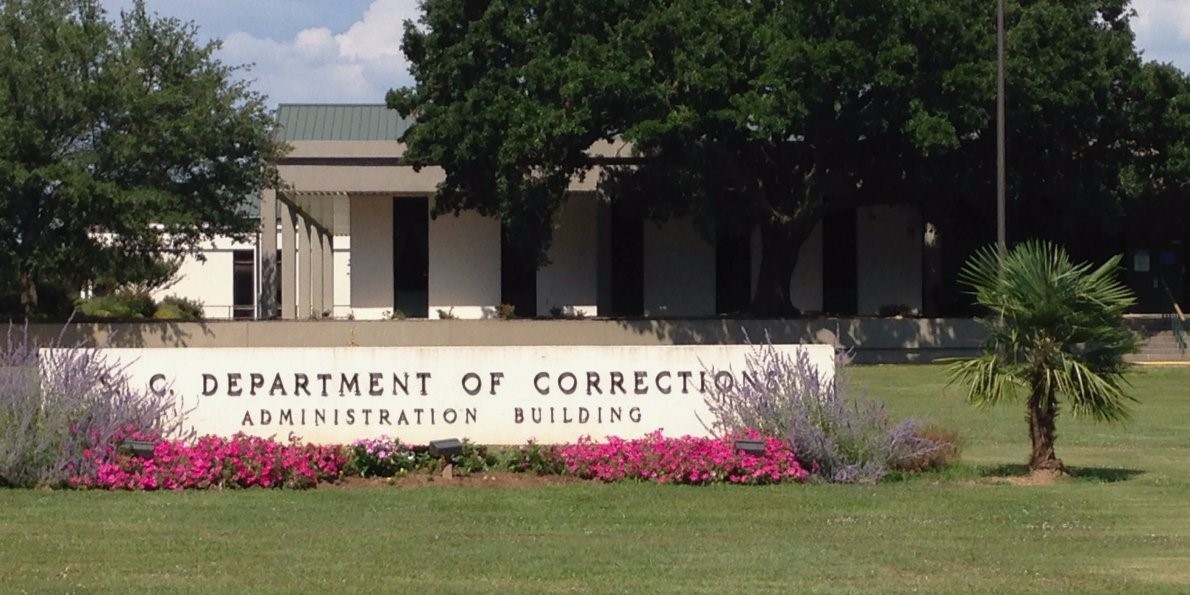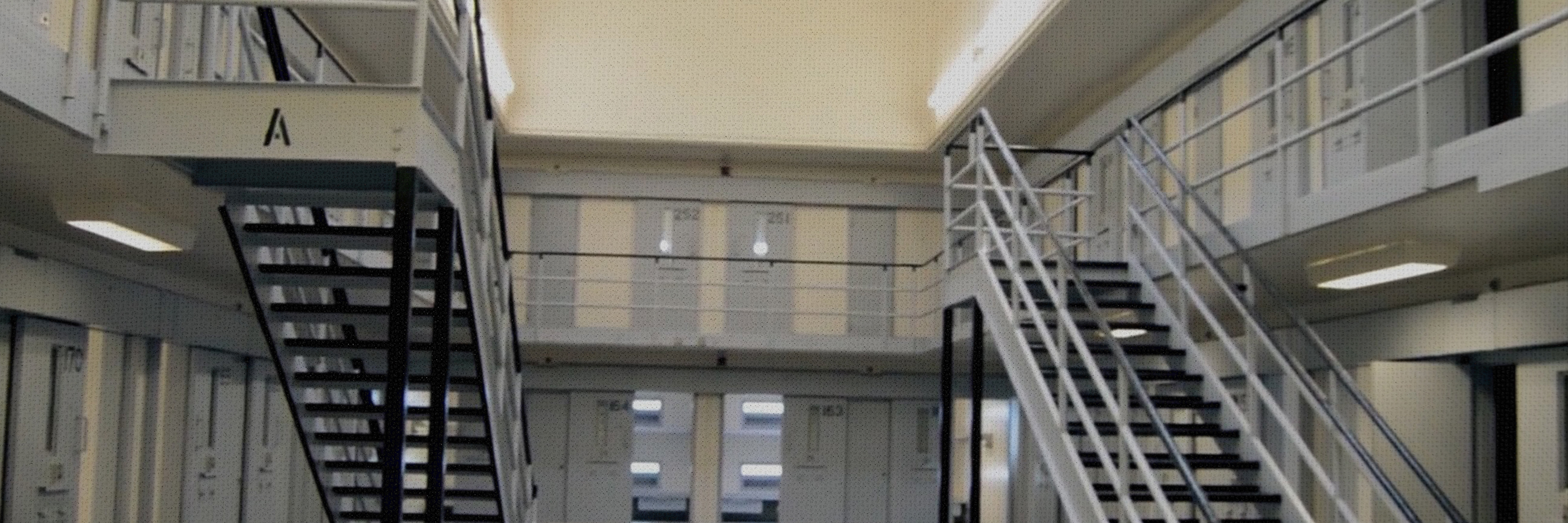
The South Carolina Department of Corrections Office of Behavioral Health Services is committed to maintaining the health and well-being of all offenders incarcerated in the Agency. The primary goal is to provide all inmates access to mental health care, substance abuse care, and Sex Offender Treatment Programs. To the extent of available resources and funding, Behavioral Health Services will provide a continuum of services that will address the related needs of our incarcerated population. BHS has three (3) primary divisions: Division of Men’s Mental Health Services, Division of Women’s Mental Health Services, and Division of Addiction Recovery Services. SCDC will ensure that a broad range of relevant services, with varying levels of intensity, are available. All services provided by BHS will be based on evidence-based research, effective/promising clinical practices, and will provide these services in a most cost-effective manner. All inmates are screened upon admission at a Reception and Evaluation Center for mental health and substance abuse/addiction and referred to the appropriate levels of care. Inmates may also request mental health care or addiction recovery services at any time while incarcerated and may come to the attention of BHS through other referral sources (i.e., staff, family members and peers) or due to their won behaviors (i.e., substance use, violence and self-injury).
The SCDC mental health level of care classification and coding system is hierarchical, ranging from (MH5), representing inmates who are able to function with minimal assistance from mental health staff, to (MH1), representing the need for psychiatric hospitalization and the greatest need for mental health care. Inmates not requiring current mental health care are classified as such (i.e., NMH). Approximately 32% of the inmates incarcerated at SCDC on July 1, 2022 were identified as requiring some level of mental health care.

GPH is an eighty-two (82) bed, single-roomed, licensed psychiatric hospital, which serves as SCDC's inpatient psychiatric care facility for the male inmate population. GPH is located at SCDC's Kirkland Correctional Institution in Columbia, South Carolina. GPH's mission is to provide twenty-four (24) hour psychiatric care and monitoring of its mentally ill inmates. This care includes psychiatric evaluations, psychological evaluation, group therapy, individual therapy, case management, medication management, and discharge planning. GPH also provides services to individuals who manifest symptoms of severe psychiatric disorders that require acute care, complex treatment management, or stabilization prior to referral to another level of care. It may also house individuals who exhibit chronic treatment needs that cannot be managed better at an alternate level of care.

Residential mental health services are provided for inmates with moderate to severe symptoms who need frequent, ongoing mental health care and services in a therapeutic environment.
The mission of the BMUs is to provide inmates with mental health needs that are likely contributing to their need for restricted housing placement, with programming, treatment, and structure as an alternative to long term placement. The BMUs are designed for inmates designated as having a mental health classification who are suffering from severe personality disorders and associated disruptive behaviors. It is a therapeutic program aimed to disrupt a cycle of repeated disciplinary infractions resulting in frequent, repetitive sanctions that often lead to long term placement in restricted settings. The goal of placement in a BMU is to assist inmates in achieving their highest level of functionality by developing alternative coping skills that result in behavioral stability sufficient to return safely to general population. In some cases, the goal will be preparation for reentry to the community at the expiration of their sentence.
ICS provides residential services for inmates with serious and persistent mental illness who require intensive treatment, monitoring, and care, but do not need psychiatric hospitalization, as well as those with intellectual disabilities who need residential level services. Inmates receive medication therapy, counseling services, and educational interventions aimed at managing psychiatric symptoms, improving basic coping skills, and developing general self-care skills. All services are provided by or under the supervision of licensed professional mental health staff. Inmates in need of residential services are often placed in these settings for long time periods to ensure sustained mental health stability before transitioning to a lower level of care.
The mission of the Choices program is to provide residential services for male inmates accepted for a higher level of care than that of traditional treatment programs. This program is based upon principles of behavioral therapy and individualized behavior modification plans will be utilized. The goal of the Choices’ staff is for participants to achieve and sustain overall stability in functioning. The objective is for all individuals to participate in therapeutic interventions, requiring motivation to work in a community setting and to improve the effectiveness of their coping and decision-making skills. Inmates assigned to Choices often have co-occurring severe mental illnesses and personality disorders. They may also have histories of self-injury and/or substance abuse.
The mission of SMHU is to provide inmates with a higher level of mental health needs with programming, treatment, and structure, when their behaviors indicate a need for a long term (i.e., greater than 60 days) Restrictive Housing setting. The SMHU is designed to be a temporary housing assignment and has a heightened level of security procedures.
It is intended for seriously mentally ill inmates with a designated mental health classification, generally of MH2 or MH3, who have met criteria for a RHU placement, due to engaging in disruptive behaviors that make it difficult to function within a mental health program or general population. It is a therapeutic program aimed to help inmates gain better control over their actions by identifying maladaptive behaviors and alternative coping skills, before being placed in or returning to a residential treatment program, or other appropriate placement. This may be achieved through positive reinforcement, including the use of individualized behavioral treatment plans to assist the inmates in achieving their highest level of functioning. This unit offers enhanced programming, with a weekly minimum of ten (10) hours of structured and ten (10) hours of unstructured services. Services include, but are not limited to, individual sessions, group sessions, psychiatric clinic, activity therapy, and approved volunteer services.
CSUs are located at Broad River Correctional Institution and Camille Graham Correctional Institution. Per policy, if warranted by a psychiatrist or psychologist, inmates are transferred to CSU level of care within 60 hours of CI placement for a period of up to (10) days. Inmates are assessed daily and a basic treatment plan is developed. The mission of the CSU is to provide therapeutic interventions necessary to aid inmates in resolving and/or managing mental health crisis situations with the goal of returning to their referring institution or to a higher level of care if deemed necessary by the CSU Treatment Team.

The primary goal of the Division is to identify, assess, and provide substance abuse programming opportunities that are educational and therapeutic for those offenders who may require such services. To the extent of available resources and funding, the Division will provide a continuum of services that will address the related needs of our offender population. The mission of the Division is to appropriately identify, assess the individual and collective substance abuse program needs of offenders; and initiate appropriate program placement within the South Carolina Department of Corrections.
A message from the National Institute on Drug Abuse on substance abuse and criminal behavior:
"The coordination of drug abuse treatment with correctional planning can encourage participation in drug abuse treatment and can help treatment providers incorporate correctional requirements as treatment goals. Treatment providers should collaborate with criminal justice staff to evaluate each individual's treatment plan and ensure that it meets correctional supervision requirements, as well as that person's changing needs, which may include housing and childcare; medical, psychiatric, and social support services; and vocational and employment assistance. For offenders with drug abuse problems, planning should incorporate the transition to community-based treatment and links to appropriate post-release services to improve the success of drug treatment and re-entry. Abstinence requirements may necessitate a rapid clinical response, such as more counseling, targeted intervention, or increased medication, to prevent relapse. Ongoing coordination between treatment providers and courts or parole and probation officers is important in addressing the complex needs of these re-entering individuals."
"When providing correctional supervision of individuals participating in drug abuse treatment, it is important to reinforce positive behavior. Nonmonetary "social reinforcers," such as recognition for progress or sincere effort, can be effective, as can graduated sanctions that are consistent, predictable, and clear responses to non-compliant behavior. Generally, less punitive responses are used for early and less serious non-compliance, with increasingly severe sanctions issuing from continued problem behavior. Rewards and sanctions are most likely to have the desired effect when they are perceived as fair and when they swiftly follow the targeted behavior."
The SCDC operates three ATU Programs, which are described in more detail below. These programs provide the most intensive level of addiction treatment available in the SCDC. ATUs provide alcohol and drug treatment of substance abusing females incarcerated in the South Carolina Department of Corrections. Clients are referred by the Parole Board, the Youthful Offender Revocation Board, court ordered, or based on an identified therapeutic need or self-referral. The treatment program provides a safe Therapeutic Community that emphasizes structure, responsibility, creditability, accountability, discipline, consistency and consequence/limit setting. The goal of each member is to remain alcohol and drug free, develop pro/social attitudes/behavior and upgrade education and marketability skills. The overall mission of the ATUs is to support each client’s re-entry into their home environment and in becoming productive members of society.
To be admitted to an ATU program the following minimum criteria must be met:
- Must be SCDC identified as chemically dependent and/or requesting treatment.
- Offenders classified as medically and/or mentally ill must be assessed and cleared by the appropriate professional and may need further stabilization prior to admission.
- No documented history of assaulting behavior 6 months prior to admission.
- Must have, at a minimum, the appropriate remaining sentence length from max out or 1 year from earliest parole eligibility date at time of admission.
- Must be sentenced under the YOA sentencing guidelines to be eligible for YOA ATU.
Adult Male Substance Abuse Programs
The Horizon Addiction Treatment Unit (ATU) is located at Turbeville Correctional Institution in Turbeville, SC. It is a 128-bed residential program designed to provide 6-12 months of structured in-patient treatment that uses the therapeutic community approach.
The Horizon program is dedicated to facilitating change, growth, and self-esteem for each therapeutic community member and returning offenders to society as productive, accountable, law-abiding citizens.
"[The counselors] have taken the eleven words that are the principles of this program, which are Honesty, Hope, Faith, Courage, Integrity, Willingness, Humility, Brotherly Love, Self-Discipline, Perseverance, and Service. These same women and men that work with us every week not only teach us to apply these principles to our daily lives; they also practice these same principles in their daily calling. They have taken these words and lowered them into the pit of our addictions as lifelines to help pull us out and guide us onto the long hard road to recovery. They have also taken these lifelines and used them to repair the holes that our addictions have torn into our lives." – Horizon ATU Program Graduate
Female Substance Abuse Programs
The Camille Graham Addiction Treatment Unit (ATU) is a 70-bed residential program designed to provide 6-9 months of structured in-patient treatment that uses the therapeutic community approach.
“When I got my sentence, I was lost and broken, and thought my life was over. I knew I needed and wanted a change. When I got accepted to the Addiction Treatment Unit (ATU) that day changed my life forever! Through the ATU program I found recovery and learned how to deal with life on life’s terms without the use of alcohol or drugs. I have been clean and sober for almost 3 years now, and I owe this beautiful journey to the ATU Program. I am living proof the ATU Program works. The program holds such a special place in my heart, and I am forever grateful!” – Camille Graham’s ATU Program Graduate
Male Youthful Offender Substance Abuse Programs
Turbeville Correctional Institutional Youthful Offender (YOA) ATU is a 128-bed residential program designed to provide 6-9 months of structured in-patient treatment that uses the therapeutic community approach.
"I can manage to say that I haven't [had] a drink or smoked in over a year now, hopefully I can continue to do the same when I am released from here. It is easy to say that I have made a change within myself because I am not around [it] on a daily basis. My main focus when I am released is to continue working on my recovery by participating in AA/NA meetings in my community. I plan to make these changes by 'stepping slow and steady' and 'being a member' in everything I do from here on out, by not feeding my 'monsters' and [continuing] my recovery." – Turbeville YOA ATU Graduate
- Have an identifiable issue with substance use.
- Minimum of four (4) months left in SCDC custody at the start of groups.
- Must be in a general population custody and/or reside in a dorm/program area that would not impede their ability to attend groups.
- Classified as Non-Mental Health or mental health (MH)-4. MH-3 will require an evaluation by a Qualified Mental Health Provider (QMHP) and will be considered on a case-by-case basis.

Inmates who have the ability to function in general population may be housed in the general population or structured living units in accordance with their security classification. Outpatient inmates are mildly to moderately impaired and/or need monitoring due to a need for medication management, recent move from higher level of care, history of self injurious behavior or mild/moderate symptoms present and/or to maintain stability. There are three (3) levels of outpatient care:
- Intensive Outpatient Treatment (MH3)
- Outpatient Treatment (MH4)
- Work Release/Medication Management (MH5)
This program is designed to screen and identify all newly admitted male and female offenders for potential behavioral health and substance abuse needs. All offenders are screened using the Texas Christian University Drug Dependency Screen (TCUDDS). Offenders participating are provided with a behavioral health substance abuse services and Agency Policies/Procedures overview prior to institutional assignment. These activities are conducted at our Reception & Evaluation sites in Columbia, SC.
The goals of our outpatient services are to diagnose and treat inmates with, and at risk for, developing an addiction to substances and to work with inmates in developing plans of care designed to minimize symptoms and reduce the adverse effects of substance use, maximize wellness and promote recovery. Outpatient services will use a trauma-informed, evidenced-based curriculums and practices to minimize symptoms, adverse effects, and/or consequences of substance use; maintain and promote recovery and sobriety within SCDC and through integration into the community.
The Medication-Assisted Treatment (MAT) Program is a partnership between South Carolina Department of Corrections and South Carolina Department of Alcohol and other Drug Abuse Services (DAODAS) to address Opioid Use Disorder among the prison population to aim for a faster recovery, reduce recidivism, increase treatment retention, and improve outcomes. MAT is the use of medications, in combination with counseling and behavioral therapies, to provide a whole-patient approach to the treatment of substance use disorders.
Benefits of MAT is the reduction of cravings and withdrawal symptoms along with the reduction in drug related overdose deaths. MAT has been shown to keep clients in treatment programs longer to increase chances of a long-term recovery.
A Certified Peer Support Specialist is a recovery oriented, evidence-based practice in which a peer who has lived experience in substance use, criminal thinking and behaviors and has gone through a recovery process to provide hope and change. South Carolina Department of Corrections Certified Peer Support Specialist will provide peer-led services ranging from individual and group support sessions on Substance Use Education and Recovery Services. Certified Peer Support Specialists within the Department of Corrections are to support multiple pathways towards recovery by building trust, inspiring hope and encouraging self-determination. With the hopes of minimizing recidivism, reducing contraband and creating a culture of recovery services inside the Department of Corrections. SCDC Certified Peer Support Specialists are positioned across SCDC Institutions working with Pre-Release Programs, Re-Entry Programs, Second Chance Programs, Re-Focus Programs, LLBMU Programs, R/E Orientations and Addiction Treatment Units.
To become a SCDC Certified Peer Support Specialist
- Must possess a high school diploma or GED
- Must complete an application with written referral by a staff member and sit for a formal interview
- Must self-identify as a person in long-term recovery (minimum of 1 year)
- Must complete a Training Program consisted of 46-Hour training opportunity and 500 hours of on-the-job work experience to receive the CPSS/RC certificate






